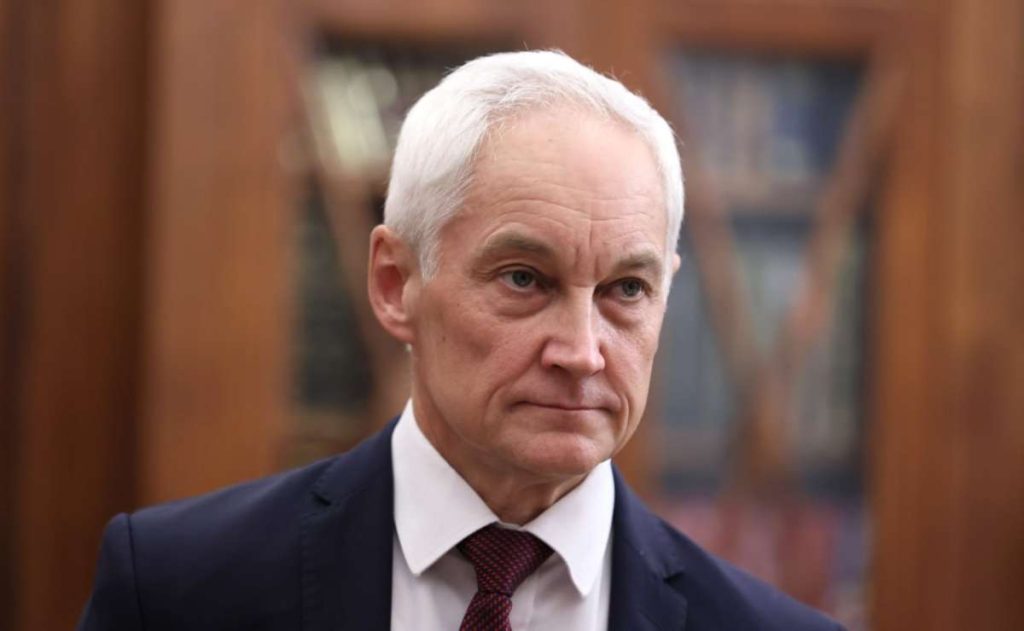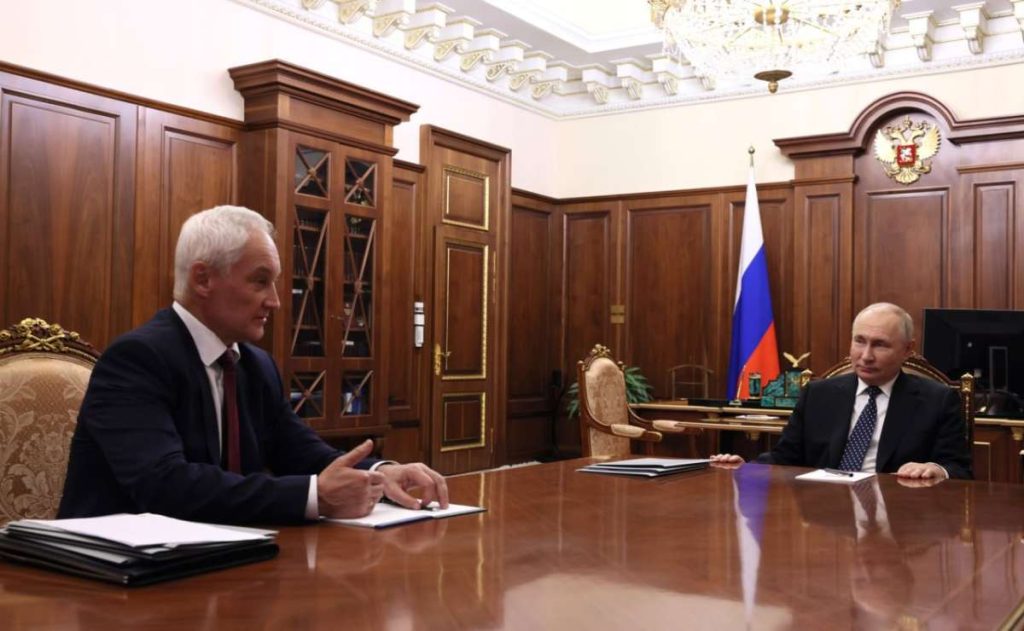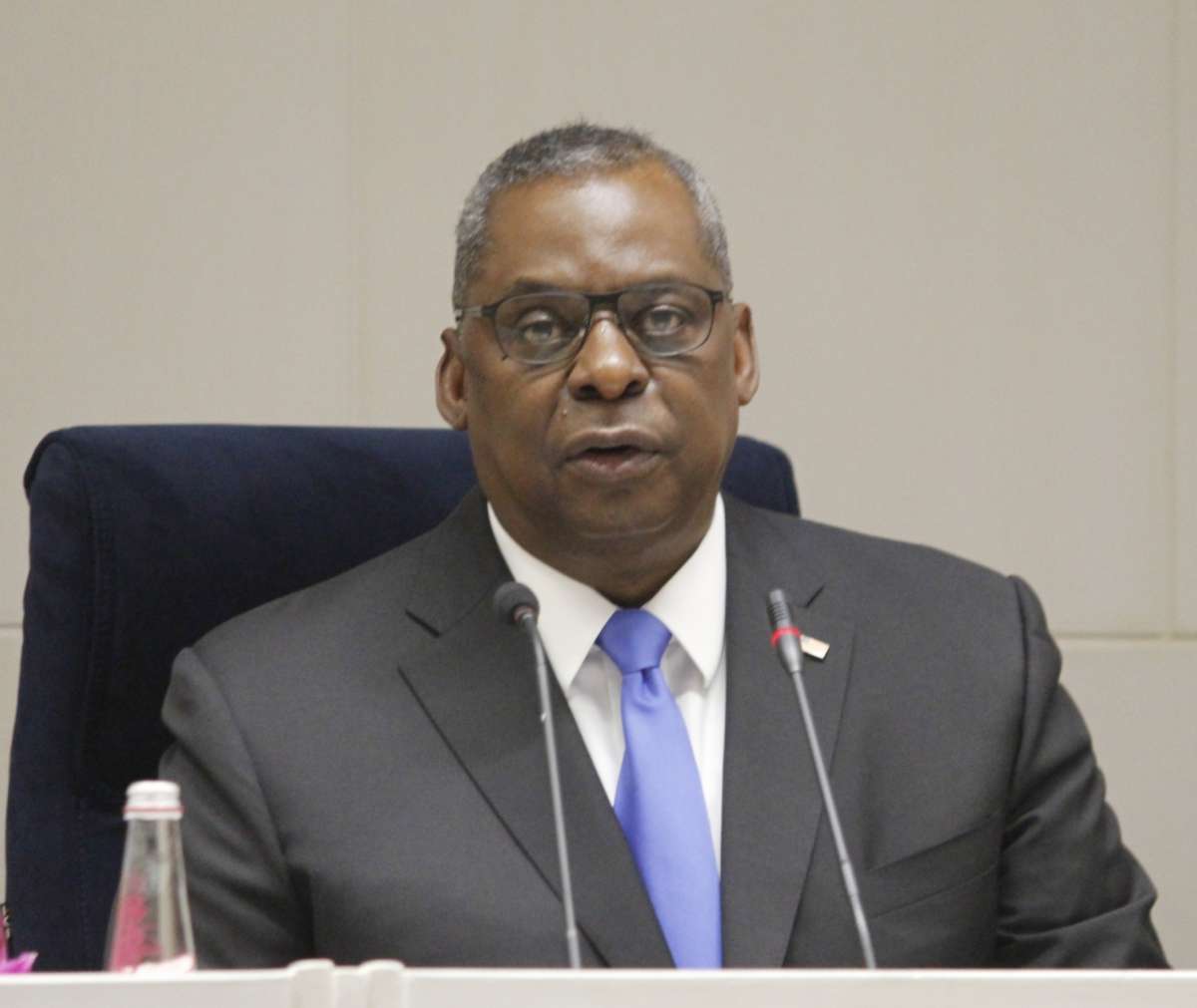The conversation between the two leaders followed the summit held in Washington DC from July 9-11 to mark NATO’s 75th anniversary in which member states committed to continued support for Ukraine.
US Secretary of Defence Lloyd Austin held a telephone conversation with his new Russian counterpart Andrey Belousov.
Secretary Austin emphasized the importance of maintaining lines of communication amid Russia’s ongoing war against Ukraine, Pentagon Deputy Press Secretary Sabrina Singh said in a briefing on Thursday.
The conversation between the two leaders followed the summit held in Washington DC from July 9-11 to mark NATO’s 75th anniversary in which member states committed to continued support for Ukraine.
It included an agreement to launch NATO’s security assistance and training for Ukraine out of a command based in Germany and a commitment to a minimum baseline funding of just over US43 billion, within the next year, Singh said.
The call, she said was initiated by the Russian side and marked the second conversation between Austin and Belousov. The previous conversation was held on 25 June and prior to that the heads of defence of the US and Russia spoke with each other in March 2023.
Russian President Vladimir Putin replaced Sergey Shoigu with Andrei Belousov as the country’s defence minister on May 12.
Ties between the two countries have been strained since the beginning of the Russian-Ukraine war.

Meanwhile the US Defence Department announced the “61st presidential drawdown authority package, which has an estimated value of USD 225 million,” Singh said.
“This package will provide Ukraine additional capabilities to meet its most urgent needs and includes one Patriot battery, munitions for rocket systems, and artillery and antitank weapons,” she said.
US President Joe Biden announced the new military aid package for Ukraine during a meeting between Biden and Ukrainian President Volodymyr Zelenskyy.
This is the second Patriot system the US has promised to Ukraine. The system will be taken directly from the US military’s inventory and sent to Ukraine quickly, as per The Hill.
Since Russia invaded Ukraine in early 2022, the United States has committed more than USD 53.7 billion in security assistance through both presidential drawdown authority and the Ukraine Security Assistance Initiative.
NATO nations have also announced their own independent efforts to assist Ukraine, including pledges of air defence systems.
Meanwhile, as per a report in The Hill newspaper, US has imposed a a limit on how Ukraine can use American-provided weapons to strike inside Russia. President Biden said that while the US has permitted Ukraine to strike beyond the Russian border near the Ukrainian city of Kharkiv, he has resisted Ukrainian demands to reach Russian targets as far as 300 miles across the border.
“If he had the capacity to strike Moscow, strike the Kremlin, would that make sense? It wouldn’t,” Biden said of Zelensky as cited by The Hill.

“The question is what is the best use of the weaponry he has? I got him more long-range capacity, as well as defensive capacity. I’m following the advice of my commander in chief, the chief of staff of the military as well as the secretary of defense, and my intelligence people, and we’re making a day-to-day basis on how far they should go in. That’s a logical thing to do,” Biden said.
Zelensky said at a press conference in Washington on Thursday that “If we want to win, if we want to prevail, if we want to save our country and to defend it, we need to lift all the [limitations],” the US publication reported.
Kremlin Spokesman Dmitry Peskov said on Thursday that NATO-provided missiles are already being used for strikes on Russia, but plans to deploy longer-range fires may escalate things further.
“We kept a close eye on all the statements and information that came out of the NATO summit. And of course, this issue is very sensitive,” the Russian presidential spokesman said, commenting on Kiev’s calls on the North Atlantic Alliance to lift restrictions on strikes inside Russia, TASS reported. (ANI)
ALSO READ: US missiles in Germany signal Cold War, Kremlin says






